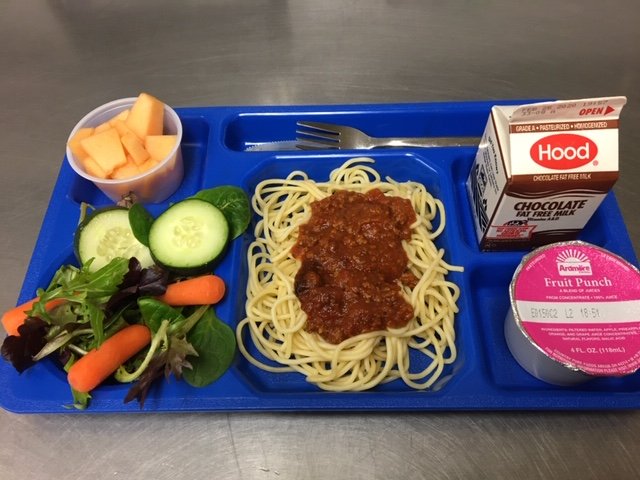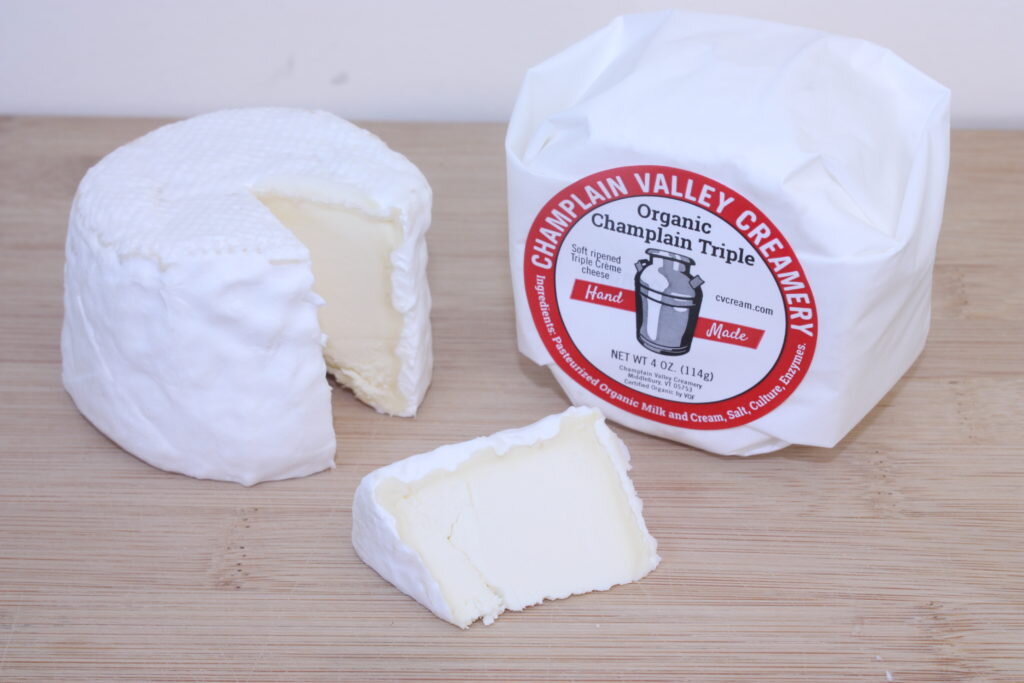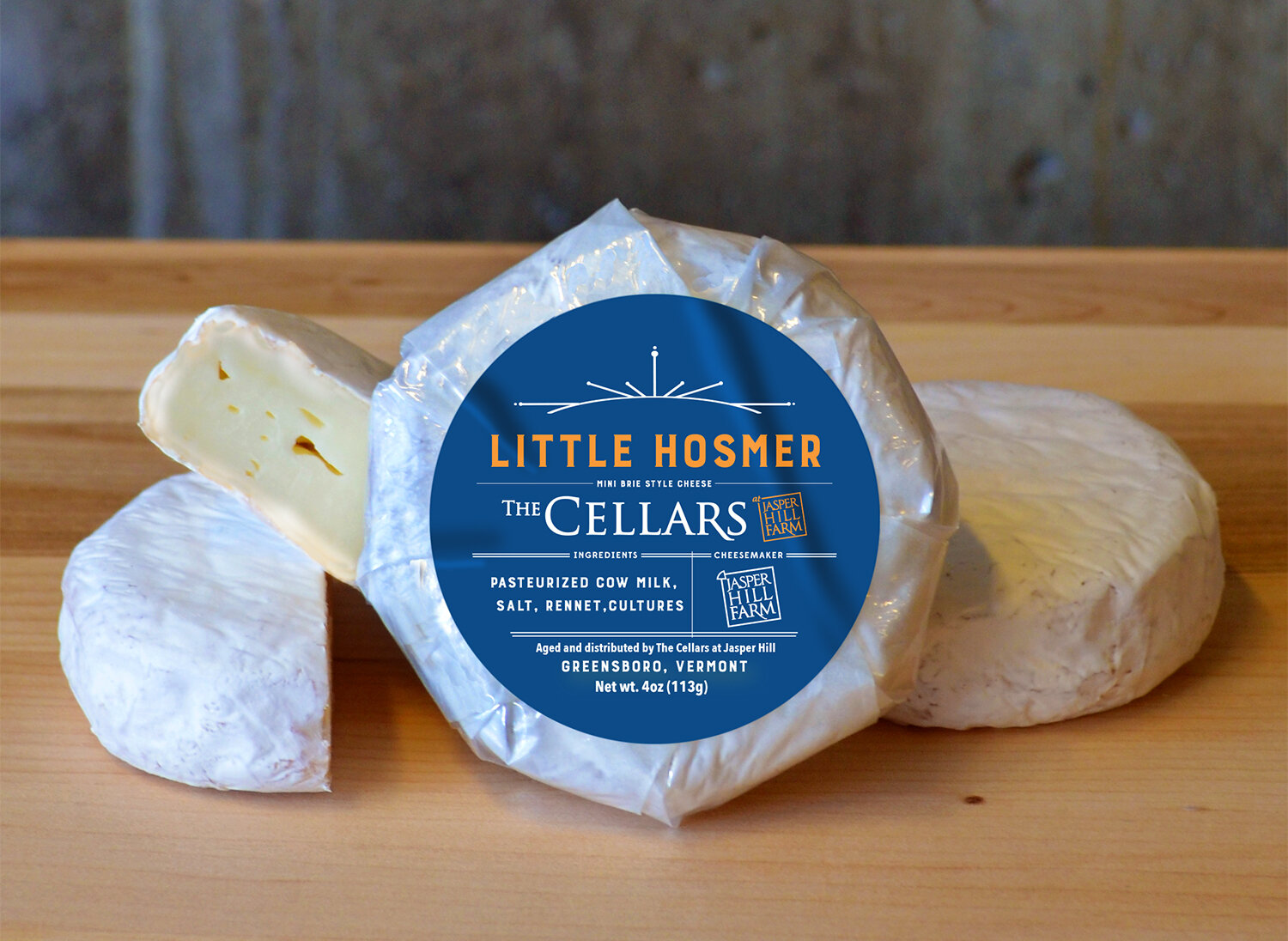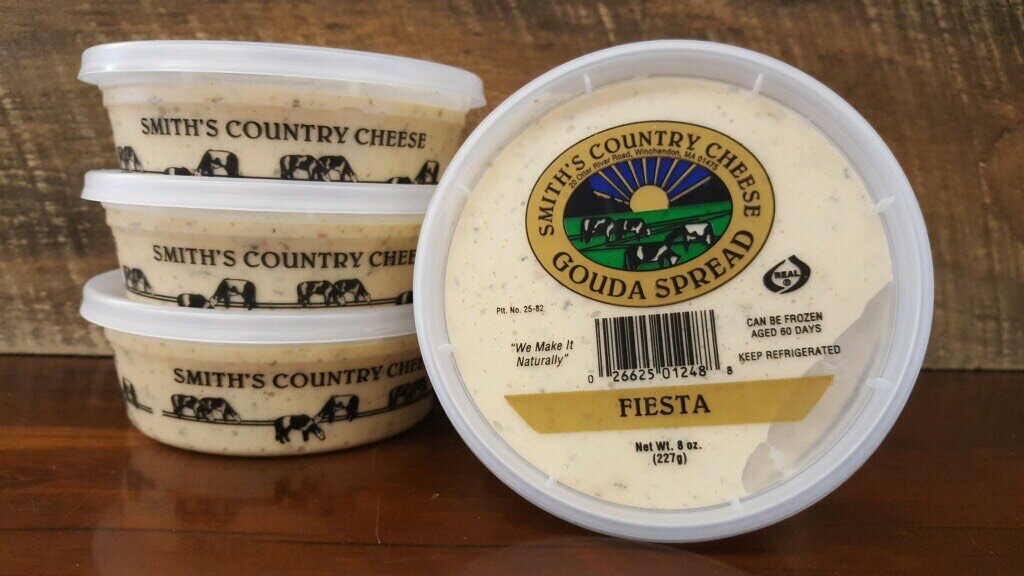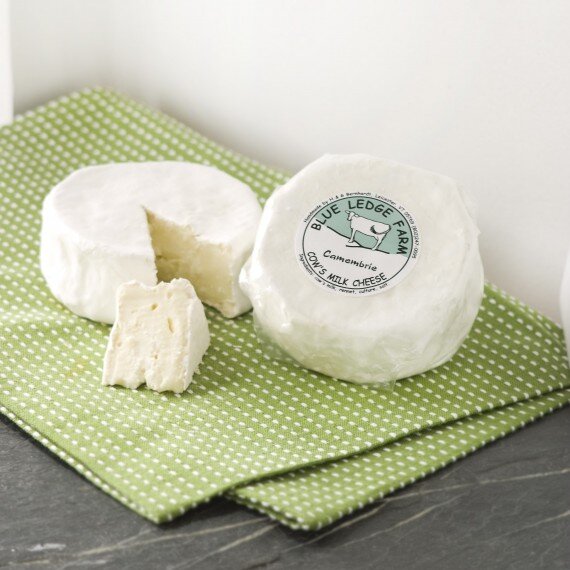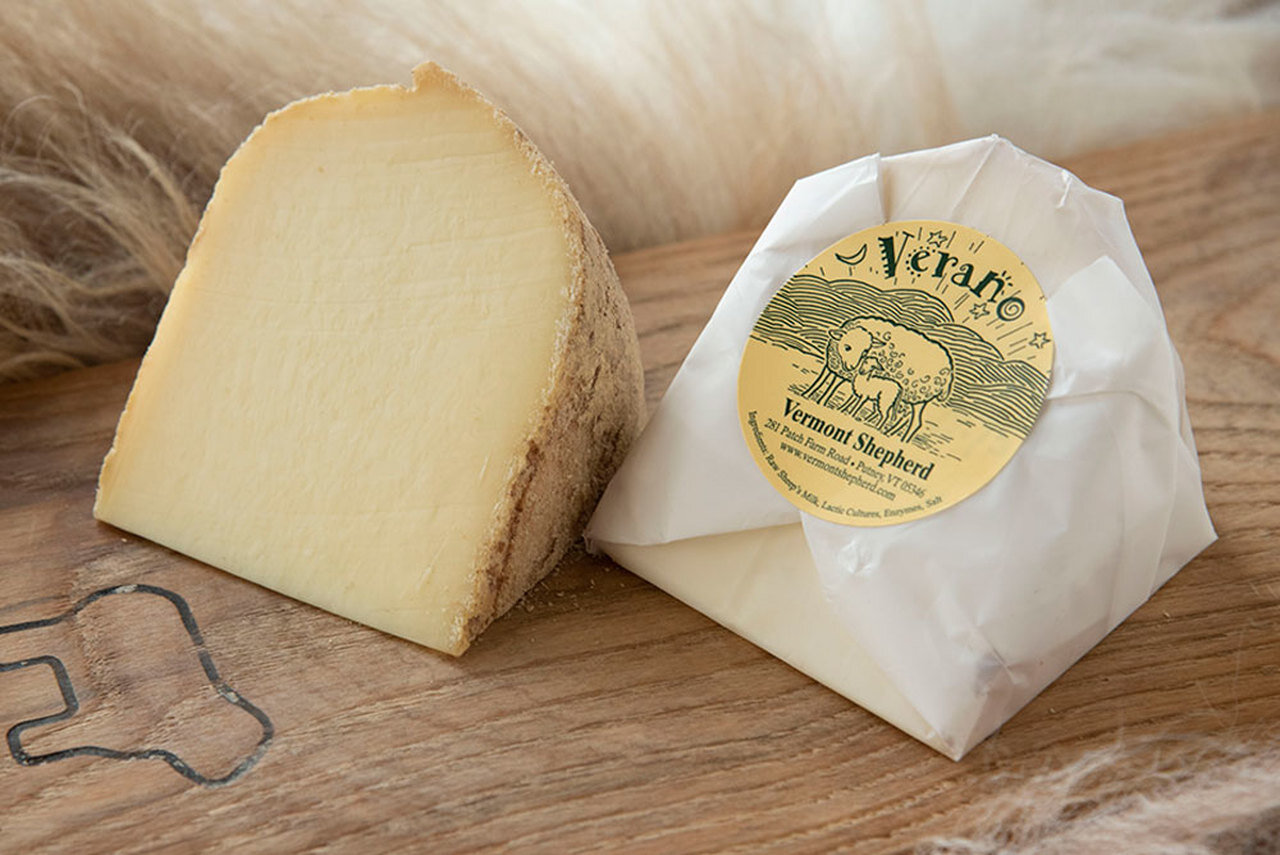Food Connects is thrilled to share the increased growth of our Food Hub family. As our team has established more partnerships with food hubs across New England, we’ve onboarded 35 producers over the past 18 months. These new producers represent an increase our diversity in products, ensuring our wholesale customers see Food Connects as a one-stop-shop.
Essex High School Partners with Food Connects
When you were in school, did you know where your food was coming from? Was your cafeteria sourcing from a local farm? Were you excited about food and learning more about it? Luckily, the answer to most of these questions for students throughout the Essex Westford School District is a resounding “yes!”
Essex High School, and the district at large, started purchasing local food from Food Connects in late 2021. The school nutrition program started with products like cheese from 5 Generations Creamery (over 80 lbs already!—that’s a lot of cheese!) and sparkling beverages from Samara. As they continue to experiment with more local foods, the students are the ones who will see the real benefits.
To learn more about the program and where they are heading with local foods, we chatted with Meghan Martin, the Child Nutrition Administrative Assistant.
What made you decide to work with Food Connects?
We were looking to expand our local food purchasing. Food Connects has direct connections with farms in Vermont and it makes it easier for us to put a name to the food that we’re serving our students. We have had that direct connection to farms in the past and we are excited to be able to continue highlighting a wider variety of local food producers. Starting slow but hoping to expand the local offerings in the future.
Parfaits made with Narragansett Creamery yogurt.
What products have been successful so far?
We purchased Narragansett yogurt and beef from Boyden Farm. Because the high school is a larger kitchen they can do more cooking with different local products and try out more recipes to see what works best. Those two items worked well!
Right now, the local food we are purchasing is just going to the high school and occasionally gets sent out to other schools. We tested out yogurt at the 3rd through 5th-grade school which was successful. With the larger kitchen size and student body at our high school, we find that it’s easier to start there with our scratch cooking products with the goal of then expanding our offerings into our other schools to the roughly 4,000 students district-wide.
Why are you interested in having regionally-sourced foods in your cafeteria?
The Farm to School movement is so prevalent right now. We have dabbled in it here and there. What we really want is to bring whole fresh foods into the district while supporting the local economy. As much as we are able, we want to close the gap between our students and the local food system and create a lasting connection between the two. It’s exciting that we are able to expand their horizons with their culinary palette and teach them what types of food we have available in our area.
Spaghetti and meat sauce made with Boyden Farm beef.
We saw that this year meals in the Essex Westford School district are free for all students 18 and under. How has this impacted your meal program?
This was through USDA waivers. With the help of these waivers, we have been able to put more focus and resources back into our meal program and we’ve seen that on average 67% more students are choosing school meals. That’s significantly more engagement and more bellies full with high quality and nutritious foods.
Additionally, Scott Fay, Senior Child Nutrition Manager, and Andrew Peet, Child Nutrition Site Manager, really wanted to work with Food Connects because of the Vermont Local Purchasing Incentive. Both this incentive and the USDA waiver put more funds back into the program and the food we provide, which allows us to get higher quality products.
How has this benefitted your students?
The students are able to access more food through the school. The more nutritious food the kids eat, the more they are ready to learn and be active throughout the day. There is already lots of positive feedback about the meals we serve—the students and staff are excited about the fresh, local food they are getting each day.
Anything else that you would like to share?
This year we have tried to revamp the menu, with the hope that it will bring in more participation and therefore revenue for the program. This includes more scratch cooking with fresh, whole produce and ingredients and so far, we are getting lots of positive feedback from changes especially when we can serve foods like Shepherd’s pie using beef from Boyden Farm. It has definitely been a process doing it on a large scale and district-wide but we have an amazing team and we’ve been working out all the details with staff over the years. We’re very excited about all the new menu changes.
Additionally, we have a Farm to School program and have done cooking activities with students and taste tests in the past. Most of that has put that on hold due to COVID-19 but we have started small again by doing more school-wide taste tests with the younger students. Our hope is that we can do these taste tests to gather feedback from students and update our menu with their input. We are also looking forward to the possibility of incorporating more Farm to School and nutrition content into the curriculum.
New Markets for New England Cheese
New England cheese! Cheesemakers in Vermont and around New England are renowned worldwide and for good reason. Tucked away in remote corners and valleys, our little region’s specialty creameries put out some of the most innovative and complex cheeses you’ll find anywhere. No, New Englanders may not generally be the most adventurous in the face of a habanero chili, but when it comes to cheese, “milk’s leap toward immortality,” the inhabitants of this region appear to be positively daring.
Unfortunately, 2020 squeezed New England cheesemakers. Restaurants and institutional food service—both major income sources for specialty cheesemakers—suffered huge losses in the face of pandemic fears, as did the classic cheese counter model (such as the cheese department at your local Co-op or Hannaford) with its focus on custom cut-and-wrap sales. Consumers shifted their purchasing toward pre-packaged cheeses and away from big-box grocery stores, towards smaller, local outlets and home delivery services. As a result, many cheesemakers lost their main markets. Those who could do so responded by retooling for pre-cut and pre-wrapped sales.
Networking for a Better Food System
In February 2020, a month before that unpleasant turn of events, Richard Berkfield and Alex McCullough from Food Connects had traveled to Upperville, Virginia. They joined nine other East Coast food hubs in a gathering that was the brainchild of Tom McDougall, owner of 4P Foods, a food hub based in Warrenton, VA, and serving the Washington, D.C. area. Food hub representatives from as far north as Maine and as far south as South Carolina converged to tackle one big question: How can we work together to serve our producers and customers better?
All of us dreamed, independently, of taking part in creating a resilient, decentralized food system, one based in sourcing from family-run farms and food businesses, in promoting food produced with social and ecological integrity, and in celebrating our regions’ foods in a spirit of collaboration and sharing.
Out of this convening, the Eastern Food Hub Collaborative (EFC) was born. Local Food Hub, 11-year-old Charlottesville, Virginia-based nonprofit with a long history running programming for food distribution and food access, is now organizing this collaboration. The EFC connects a still-growing roster of 14 East Coast food hubs, 600+ producers, and tens of millions of dollars of aggregate annual sales in a shared mission to scale a new paradigm of food for the East Coast.
As a group, we intuited that we’d always source first from our own local and regional producers within our respective hubs. And we could do that while also providing customers access to unique products from other places up and down the East Coast. And, conversely, at Food Connects, we could do so while introducing other regions to the special foods that only New England can offer.
What better way to show off New England than with cheese?
Connecting Cheese to Networks, and People to Cheese
Tom from 4P Foods declared on the first day of our convening in Virginia that 4P wanted to sell New England cheese. Richard and Alex drove home with a mission and a lot of work to do. That summer, with the guiding hand of Beth Lewand, former cheesemonger extraordinaire and Food Connects’ then-new Sales Associate, we launched our Specialty Cheese Catalog. At that time, the catalog acted as a testing ground to build supply relationships, learn about products, solve inbound logistics, and start figuring out new ways to supply customers with great cheese.
It turned out that the pre-cut cheeses that cheesemakers had emphasized since the COVID-19 crisis suddenly worked very well for much of Food Connects’ customer base: for farm stands, CSAs, small independent stores—and for home-delivery food hubs like 4P.
In coordination with buyers Justin White and Devon Byrne from 4P, Food Connects shipped its first pallet of cheese to Virginia on May 12, 2021, as a pilot run. Would the cheese make it through the 500+ mile trip? Would customers buy it? Would they come back to buy more?
We’re proud to announce a resounding “Yes” to all of the above! June 24–just last week!–marked our second and even larger cheese pallet shipment to 4P Foods. Stacked high with boxes from Grafton Village Cheese, Jasper Hill Farm, Smith’s Country Cheese, Narragansett Creamery, Parish Hill Creamery, Champlain Valley Creamery, Blue Ledge Farm, and Vermont Shepherd, this pallet represents Food Connects’ commitment to leveraging our unique location in the heart of New England to build a meaningful, brand new market outlet for our region’s cheesemakers.
In all, since the Specialty Cheese Catalog’s launch in August, Food Connects has sold more than $136,000 of specialty cheese. We’ve delivered cheeses to retail outlets, restaurants, and institutional food service programs in Vermont, New Hampshire, and Massachusetts. We’ve sent countless boxes of cheese to other Food Hub partners around New England, including the Three Rivers Farmers Alliance, of Exeter, NH, and Farm Fresh Rhode Island, of Providence. Both of them source cheese through Food Connects to add to their home delivery programs. Even if in a small way, we’re proud to have contributed to supporting our cheesemakers through a uniquely difficult time.
We hope that this is just the beginning. We started with a small selection of producers to avoid overcomplicating logistics and over-diluting sales to our emerging market. As demand for cheese grows within our networks, we will continue expanding our product selection. We aim to build a strong, diverse catalog that brings together the best that our region offers, opening new doors for eaters up and down the coast looking for a gustatory experience they will never forget. And, of course, one that builds real, long-term markets for cheesemakers across New England who work to keep this ancient craft alive, thriving, and profitable now and into the future.


